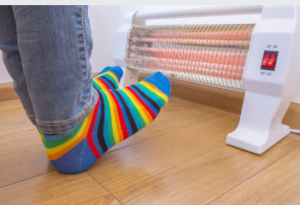
Ducted gas heat has none of the exposed, open hot surfaces, none of the visible flames, none of the fume emissions or visible dials or knobs to manipulate: no smoke, ashes or fumes, just clean, radiant heat. With zone heat and central air conditioning units, even better heating efficiency is achieved: lower running expenses with zone heat and gas fireplace units; with unique energy saving controls; plus single ignition point thermostats that greatly improve gas range efficiency. And with a direct vent design, the entire room maintains constant temperature and airflow.
A good home can be planned on a simple premise: a sufficient amount of natural daylight, coupled with controlled ventilation for fresh air circulation and the elimination of foul smells. In addition, good ducted gas heating systems must be properly vented. Otherwise, excessive moisture may form a vapour barrier in cold regions of the house, resulting in a reduction in heat production and ultimately reduced comfort. That is why air ducts must be cleaned periodically by professionals.
Ducted-gas-heating allow the natural gas combustion of warmth in an optimized manner. This ensures that the entire heating system is utilized for the intended purpose at the correct temperature. In natural gas, this typically means that the homeowner must specify that a particular gas combustion furnace should be used for heating or cooling. Otherwise, improper use could seriously compromise safety.
Ducted heating systems are usually placed in a cold part of the house, such as the attic or crawl space. This placement is because the furnace unit is usually located where the room is cold most of the day. This temperature remains constant throughout the year. During the summer months, it will be hot, while during the winter, it is cold. This condition is inconvenient since the homeowner must reconfigure the heating system to be used in other areas.
Heating systems and air conditioning both have their advantages and disadvantages. While they may be used efficiently, there is still an energy consumption cost when using them. Heaters can also lead to health risks. Many homeowners find it more convenient to use an air-conditioning system since it reduces the risk of experiencing respiratory problems such as asthma. But aside from these health risks, there is no doubt that heaters can provide for greater comfort during the long winters.
With these advantages, it is understandable why many people prefer to opt for an HVAC system over a ducted system. If you are interested in installing an HVAC unit inside your house, there are things that you need to consider first. For one, you need to determine whether your home is currently Energy Star rated or not. Even if it is not yet, it is a good idea to get this done first so that you can choose the right heating system to install. Aside from the cost, you also need to determine the right size of the ducts and the right venting arrangement to avoid energy consumption costs.
Another consideration is zoning. Zoning determines the proper amount of heat flowing through the pipes so that you won’t have to worry about wasting energy. Different zoning options could affect the cost-effective but low maintenance rate of the HVAC system. It is important to check on the local building codes before you make your decision to purchase one.
The three main types of ducted-gas-heating are convective air conditioning (AC), forced-air heating (Fahr) and radiant underfloor heating. With F AHr, you don’t have to worry about leaks as they work by using an open channel to send warm, moist air from the floor up to the wall or ceiling. On the other hand, convection and forced air conditioning operate using ducts fixed into the walls, and they use special fans and blowers to speed up the airflow rate and lower the temperature.
